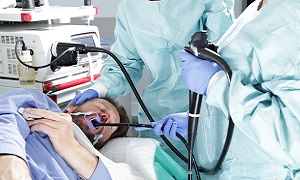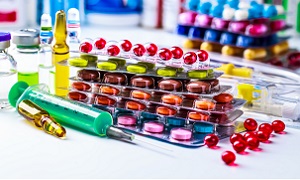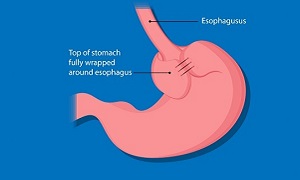Best Doctors in India for GERD Treatment
Best Hospitals in India for GERD Treatment
- City: Bengaluru, India
Hospital Highlights:
- Fortis Hospital Bannerghatta, Bengaluru was established in 2006.
- The hospital is a 276 bedded multi-specialty tertiary care facility.
- The hospital specializes in cutting-edge medical technology and dedicated patient care services.
- The hospital is equipped with state-of-the-art technologies like trans-radial angioplasty, trans-abdominal cardiac surgery, and computerized TKR navigation surgery.
- The hospital provides specialty medical services in cardiology, cardiac surgery, orthopedics, neurology, neuro-surgery, GI, and Minimal Access Surgery (MAS).
- City: Chennai, India
Hospital Highlights:
- Fortis Malar was established in 1992 and was formerly known as Malar Hospital.
- The hospital specializes in cutting-edge medical technology and dedicated patient care services.
- The hospital is multi-specialty, tertiary care facility with 180 beds.
- The hospital offers comprehensive medical care in specialties such as cardiology, cardio-thoracic surgery, neurology, neurosurgery, orthopedics, nephrology, gynecology, gastroenterology, urology, pediatrics, and diabetes.
- City: New Delhi, India
Hospital Highlights:
- Established in 1996, Pushpawati Singhania Research Institute is one of the top hospitals in the NCR region, as well as one of the top facilities in India for gastroenterology. The hospital is one of South Asia’s first institutes in medical and surgical treatment for diseases related to digestion.
- The hospital is equipped with state-of-the art facilities coupled with the latest equipment as well as renowned consultants from various parts of India as well as other parts of the world.
- City: New Delhi, India
Hospital Highlights:
- State-of-the-art technology and devoted healthcare professionals have been brought together under one roof at Venkateshwar Hospital to provide genuine medical care. The hospital’s professionals work together as a team to deliver the best possible treatment to their patients, using the most sophisticated equipment and information technology.
- Venkateshwar Hospital’s mission is to attain global excellence in healthcare by employing evidence-based, ethical clinical practices and cutting-edge technology by a team of highly skilled experts.
- City: New Delhi, India
Hospital Highlights:
- Sir Ganga Ram Hospital, New Delhi is known to provide the latest medical procedures with the latest technology in all of its units.
- The hospital has a team of reputed doctors, nurses, and healthcare professionals that ensure that patients receive quality care at affordable costs.
- Staffed with a team of highly qualified doctors, dedicated nurses, and paramedical and non-medical staff, the hospital aims to lead in healthcare delivery, medical education, training, and research.
- As per the vision of the founder, the hospital also provides free treatment to the economically weaker sections of society.
- Sir Ganga Ram Hospital also provides training to young doctors under the Diplomate in National Board(DNB) program. The DNB program at the hospital was started in 1984 and it is known for currently running the maximum number of DNB specialties in the country. It also has the distinction of having the first bone bank in India.
- City: Kerala, India
Hospital Highlights:
- Established in 2019, Apollo Adlux Hospital is the first Apollo Hospital in Kerala and the 73rd hospital owned by Apollo Group in India. With the state’s most advanced, comprehensive healthcare infrastructure and cutting-edge technologies, Apollo Adlux Hospital stands as an example of medical excellence in Kerala.
- With over 34 multi-specialty departments, the hospital believes in providing the best quality treatment to its patients at affordable rates, ensuring comfort at their difficult times.
- The 300-bed hospital is managed by a team of highly qualified and experienced experts who delivers exceptional hospitality to their patients and treats them with great compassion.
- With its affiliation with the Apollo Hospitals Group, the hospital aims in providing patients with top-notch healthcare services while also serving communities in Kerala.
- The hospital has good railway and road connections, and is conveniently close to Cochin International Airport.
- City: Gurugram, India
Hospital Highlights:
- Situated near DLF Cyber City, Gurugram, Narayana Superspecialty Hospital is one of the top medical facilities in the Delhi NCR region, catering to the needs of the people. Known for its commitment to quality medical care and patient service, the hospital is a state-of-the-art facility with planned and well-equipped sections, which includes a spacious OPD area as well as comfortable patient rooms.
- It is the closest super-specialty hospital from Indira Gandhi International Airport towards Gurugram, and also the nearest super specialty hospital from DLF Cyber City. It is also close to major residential areas in Gurugram.
- It is part of the renowned Narayana Health Group. Established in 2000, by Dr. Devi Shetty, a renowned cardiac surgeon, it has grown to be one fo India’s leading healthcare groups.
- City: Noida, India
Hospital Highlights:
- Fortis Hospital, Noida, stands as one of the oldest and most trusted healthcare institutions in the region, setting a benchmark for comprehensive medical care.
- As the second mega hub hospital in the Fortis Healthcare Group, Fortis Hospital, Noida, upholds a legacy of trust among more than 1.2 million patients. By integrating top-tier professionals with cutting-edge technology, the hospital delivers superior treatment across various medical disciplines.
- Specializing in advanced Neurosciences, Orthopedics, Kidney and Liver Transplant Programmes, Fortis Hospital, Noida has successfully performed over 1,500 transplants, solidifying its reputation as a leader in specialized medical interventions.
GERD
Gastroesophageal Reflux Disease also known as GERD, is a digestive disorder which is known to affect the lower esophageal sphincter, the ring of muscle between the esophagus and the stomach. It occurs when the stomach acid frequently flows back into the tube which connects the mouth and the stomach. The backwash might irritate the lining of the esophagus. Many people are known to experience this ailment quite often.
How severe this ailment is, depends on LES dysfunction as well as the type and amount of fluid which is brought up from the stomach and the neutralizing effect of saliva also.
Causes of GERD
Occasional acid reflux which is known to be quite common, often occurs as a result of overeating, lying down after eating or consuming some kinds of particular foods. However, GERD is recurrent acid reflux and can occur in people of all ages and it usually has other causes as well as risk factors. It can also cause even more serious complications.
GERD starts to occur when the sphincter located at the bottom of the esophagus becomes weak or it opens when it is not supposed to. GERD is more commonly seen among people who are:
- Obese or overweight due to increased pressure on their abdomen
- Pregnant, due to the same increased pressure
- Taking certain medications; this may include medications for asthma, sedatives, antidepressants, etc.
- Smoking or being exposed to second-hand smoke
Symptoms of GERD
GERD has multiple signs and symptoms, which include:
- A burning sensation in the chest usually after eating, which can get worse at night
- Pain in the chest
- Difficulty in swallowing
- Regurgitation of food or sour liquid
- Sensing a lump in the throat
If you are having nighttime acid reflux, then you may also experience disrupted sleep, chronic cough, laryngitis or asthma.
Diagnosis of GERD
Your doctor will be able to diagnose GERD using physical examination and history of your signs and symptoms. To confirm a diagnosis of GERD or to check for complications, your doctor may recommend:
Upper endoscopy
During upper endoscopy, your doctor will be inserting a thin, flexible tube that is equipped with a light as well as a camera. It is sent down your throat in order to examine the insides of your esophagus and stomach. When reflux is present, test results are often normal, but an endoscopy can detect inflammation of the esophagus or any other such complications. An endoscopy has other uses as well, such as collecting a tissue sample to be tested for complications such as Barrett’s esophagus.
Ambulatory acid probe test
During ambulatory acid probe test, a monitor is placed in your esophagus in order to identify when and for how long stomach acid regurgitates there. The mentor is connected to a small computer that you can strap over your shoulder or even wear around your waist.
Esophageal manometry
Esophageal manometry test is meant to measure the rhythmic muscle contractions in the esophagus when you swallow. Esophageal manometry can also be used to measure the coordination and the force exerted by the esophagus muscles.
X-ray of your upper digestive system
X-rays are taken after one drinks a chalky liquid which coats and fills the inside lining of one’s digestive tract. This coating will allow your doctor to see a silhouette of your stomach, esophagus, as well as your upper intestine. You might also be asked to swallow a barium pill which can help you in diagnosing a narrowing of the esophagus that might interfere with swallowing.
Treatment options for GERD
It is likely that your doctor will recommend that you first try lifestyle modifications and over-the-counter medications. If you are not experiencing relief within a few weeks, you might be recommended prescription medication or surgery.
Prescription medication
There are several options-
Antacids to neutralize stomach acid: Antacids, such as Mylanta or Rolaids can help you by providing quick relief. However, antacids alone will not heal an inflamed esophagus which has been damaged by stomach acid. Overuse of some antacids might cause side effects like diarrhea or even kidney problems.
Medications for reducing acid production: These kinds of medications which are known as H-2 receptor blockers include cimetidine, famotidine as well as nizatidine. However, H-2 receptor blockers don’t act as quickly as antacids. However, they are able to provide longer relief and might decrease acid production from the stomach up to 12 hours. Stronger versions are also available which you can obtain through prescription.
Medications for blocking acid production and healing esophagus: Also known as proton pump inhibitors, are stronger kind of acid blockers than H-2 receptor blockers and also allow time for damaged esophageal tissue to heal. Over-the-counter proton pump inhibitors can include lansoprazole and omeprazole.
Prescription-strength treatments for GERD include-
- Prescription-strength H-2-receptor blockers: This includes prescription-strength famotidine and nizatidine. Though these medications are usually well-tolerated, long-term use can lead to a slight increase in deficiency of vitamin B-12.
- Medication for strengthening the lower esophageal: Baclofen might help in easing GERD by decreasing the frequency of relaxations of the lower esophageal sphincter. However, there might be side effects which can include nausea or fatigue.
- Prescription-strength proton pump inhibitors: These include esomeprazole, lansoprazole, omeprazole, pantoprazole, dexlansoprazole and rabeprazole. It is generally well-tolerated but these medications might lead to diarrhea, nausea, headache as well as deficiency of vitamin B-12. Chronic use can also lead to hip fracture.
Surgery and Other Options
Though GERD can be controlled using medications, people can opt for surgery, if medications don’t help or if one wishes to avoid long-term use of medications. Your doctor will recommend:
Fundoplication
In Fundoplication, the surgeon will wrap the top of the stomach around the lower esophageal sphincter, in order to tighten the muscle as well as prevent reflux. Fundoplication is done usually with a minimally invasive procedure. The wrapping of the top part of the stomach may be partial or complete.
LINX Device
This procedure involves a ring of tiny magnetic beads which is wrapped around the junction of the esophagus and the stomach. The magnetic attraction between the beads is strong enough to keep the junction to refluxing acid, but at the same time, weak enough to allow the food to pass through. Through minimally invasive surgery, the LINX device can be implanted quite easily.
Transoral incisionless fundoplication
Transoral incisionless fundoplication is a new form of procedure, which involves tightening the lower esophageal sphincter by creating a partial wrap around the lower esophagus with the help of polypropylene fasteners. This procedure is performed through the mouth with a device which is called an endoscope and it doesn’t require any surgical incision. Its advantage is that the recovery time is quick and the tolerance is high. If you are having a large hiatal hernia, this procedure can’t be performed alone. However, it might be possible if this procedure is combined with laparoscopic hiatal hernia repair.
Risk Factors
There are certain conditions that can increase your risk of having GERD. They include:
- Obesity
- Pregnancy
- Connective tissue disorders
- Delayed stomach emptying
- Bulging at the top of the stomach
There are several factors which can aggravate acid reflux and these include:
- Smoking
- Consuming large meals, especially late at night
- Drinking certain beverages, like alcohol or coffee
- Take medications like aspirin
Complications of GERD
If it is left untreated, GERD can worsen into other conditions, such as-
- Esophagitis: This is a form of inflammation of the esophagus.
- Esophageal stricture: In this condition, the esophagus is seen to become narrow, which makes it difficult to eat and swallow
- Barrett’s esophagus: In this condition, the esophagus can change into cells that are similar to the lining of the intestine. This might eventually develop into cancer.
- Respiratory problems: One might sometimes breathe stomach acid into the lungs and this can cause a range of problems, which can include chest congestion, hoarseness, laryngitis, asthma or pneumonia.















